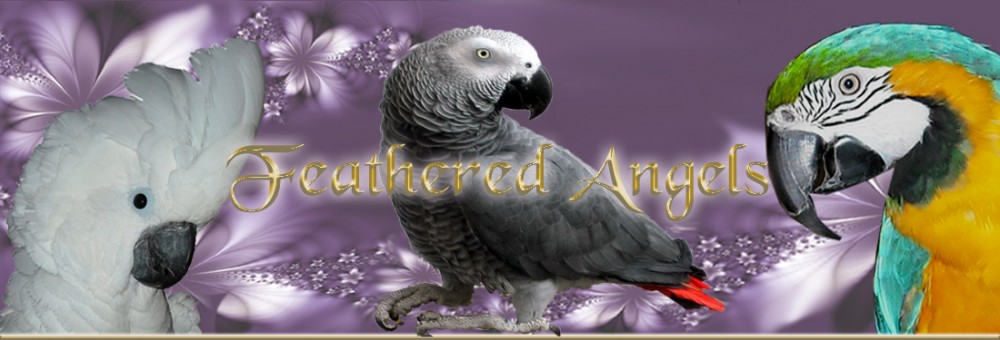Many breeders and stores sell unweaned baby parrots, claiming that finishing the hand-feeding and weaning process yourself will “guarantee a hand-tame bird” and “ensure bonding.” While this sounds compelling, it is not true! The seller’s true motivation is to save money; hand-feeding is labor intensive and eats up profits. Unfortunately, the mistakes commonly made by inexperienced hand-feeders often set up parrots for chronic physical and/or behavior problems that may increase the likelihood that they will be abused, neglected, unwanted, or abandoned at some time in their lives.
Forced weaning — refusing to feed a begging chick with the assumption that when it gets hungry enough it will eat — is often the choice of those who tire of hand-feeding before the chick is ready. Parrots in the wild are weaned by their parents over a period of months — or even years — as they learn to forage on their own. Forced weaning can result in malnutrition, starvation, and permanent behavior problems such as rigid eating habits, nervousness, and chronic begging.
Proper weaning is the responsibility of the breeder. Never buy an unweaned baby bird, and never support stores or breeders that sell them!


What happens when a baby is weaned before it is ready? I have a blue-throated macaw that was given to me about 2 years old that tries to feed with my finger from the side of his mouth. Sundance also tries to feed with the bars of his cage too. My Elvis, a moluccan cockatoo, was properly weaned and has never done this. Sundance is a pellet eater and loves them. He’s actually a little pig! I’ve tried fruits and veggies but he refuses. Are there long-term issues associated with this? Thanks for your help. Cindy
Unweaned Is Unkind from AWC
Young, unweaned birds are routinely removed from their parents at or shortly after hatching to be artificially reared by humans. This practice gained popularity under the faulty assumption that it was the best way to ensure that birds became “tame” and bonded with their human caregivers. The sad truth is that hand-rearing has meant misery for countless generations of birds.
Hand-feeding, especially in the hands of inexperienced individuals, often leads to tragic complications, including infection, aspiration pneumonia (caused by food entering the lungs), burned or punctured crops (caused by forceful feeding or food that is too hot), malnutrition, or even death. Birds who are artificially reared are also more likely to develop behavioral problems such as excessive screaming, feather plucking, self-mutilation, and aggression.
Research conducted at the University of California, Davis, showed that allowing parrot chicks to be raised by their parents and handled by humans as little as 15 to 20 minutes a day while in their parents’ care produced tame parrots without the physical and behavioral risks of artificial rearing. Further, many people have discovered that building a nurturing relationship with a parrot begins when the bird, no matter what his or her age or how he or she was reared, begins to trust. This is evidenced by the fact that parrot rescue groups successfully place hundreds of unwanted adult birds each year, despite their not having been weaned by their new caretakers.
Pako was 8 when I got him and he’s the most intelligent, loving, affectionate, funny bird.
All my older birds are love bugs, Georgie took some time, but he’s the best snuggler.
That hand weening to make a bird more tame and bonded is BS. >_<